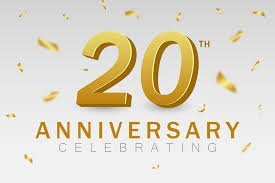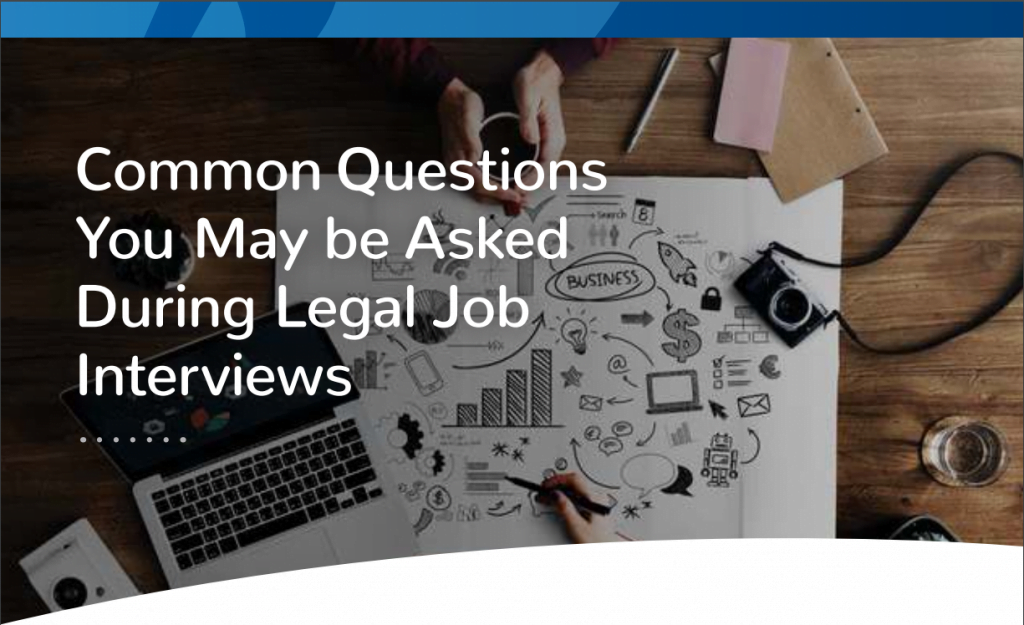Uncertain times- don’t worry, we are in your corner

Sometimes you need to talk to someone about your career. It is dangerous to speak to colleagues at work so an objective outsider with industry experience is a good option. Here is where an experienced consultant can help. Elias Recruitment has over 20 years helping legal professionals in private practice and in-house legal roles. Our award winning team, are a safe pair of hands to advise on everything from salaries and your current role or any future move. We can offer expert advice and insight into which opportunities will best suit your career ambitions. We have consultants in Sydney, Melbourne, Brisbane and Perth to assist you. So if you want a friendly, objective voice on your team, book a free career chat with one of our team at [email protected].
How to position yourself for approaches – Headhunting…

A few touches to your mobile phone and your groceries, an Uber or a pizza come to you. So why not a job? Many of the best jobs are never advertised so how do you hear about them? Good employers know that the best lawyers are so busy running their practices that they don’t have time to trawl through job ads. They also like keeping strategic hires out of the public eye so the marketplace doesn’t catch on to what they’re doing and where they’re headed. That’s why, when it comes to bringing in the big guns, they’ll use third party headhunters to track down, sound out and snare the best talent for themselves. Headhunters don’t use a scattergun approach. Once they’ve been briefed, they usually put feelers out via networks, compile a longlist, then research those candidates to see who’s likely to be a good fit. By the time they approach someone, they pretty much know who they are, what they do and what their reputation is like. So, if you want to be in their sights, there are six things you should be doing. Social networks – make LinkedIn work for you Review your LinkedIn profile, make sure it clearly articulates your skills, experience and area of practice. Highlight projects you’ve worked on and the value you contributed (without of course breaching client confidentiality). Headhunters want to have a good understanding that you’ve worked on similar kinds of matters to those their client has briefed them about. Don’t be shy about blowing your own horn. See Getting your social media profiles ready (Above). Be known as an industry expert You’ll never be headhunted if no one has ever heard of you. So, if you’re not already building a profile for yourself, start now. Put yourself forward to present on your areas of expertise wherever possible, especially for industry events or CPD. As an example, check out Bulletpoints for content. Write about important issues and hot topics affecting your work and share these – not just via your firm’s newsletters but directly with contacts by publishing LinkedIn and other social media channels. To ramp things up, join LinkedIn groups of like-minded people such as Australian Legal Community and start contributing to the conversations. Consider publishing in industry journals – or better still, form relationships with journalists to expand opportunities of being quoted in business or mainstream press as an expert in your field. Releasing subtle signals If you are considering making a move, it’s a good idea to start putting your feelers out there. You can even change your LinkedIn settings to discreetly show that you are open to new opportunities (not viewable to your employer). Also check that your Inmail settings allow you to notify users that you are open to ‘career opportunities’. Make contacting you easy, not a mystery While gatekeeping receptionists can be great at shielding you from telemarketing calls, they can act as a block for headhunters who want to sound you out. So make yourself easy to contact by including your mobile number and personal email address on your LinkedIn profile. If a headhunter struggles to reach you, they may bypass you and run the opportunity by the next person on their list. And, if a headhunter calls and you can’t speak freely, set a time to chat when you’re out of the office. This also gives you a chance to check out their LinkedIn profile to see whether you want to deal with them. Remain professional, don’t breach etiquette Don’t tell anyone in your firm – and that means anyone – about your plans to move, even once you’ve been approached. If the headhunting process isn’t handled discreetly, you’re likely to jeopardise your current position as well as any new opportunities. If a headhunter alerts you to an opportunity never approach the employer directly. Not only will your overtures be met with blank stares, you’ll be seen as disloyal. They’re using a headhunter for a reason and it may be a confidential search. But don’t be afraid If you are approached by a headhunter, you can benefit from their expertise. It never hurts to know the state of the market and have a trusted source of intelligence, especially around salary review time. Besides, even if the specific opportunity they wanted to talk about isn’t right for you at the time, something may hit their desk in the near future. Finally, if you’ve noticed that they’ve looked at your LinkedIn profile, drop them a line to find out why. Headhunting can be a slow dance of missed calls, profile views and unnoticed messages sitting in your personal email account. So, if you’re open to a move, make sure you stay alert and responsive to any headhunter approach. For additional career advice contact Jason Elias on [email protected]
Four Easy Ways To Pimp Your CV

A study by US job board The Ladders found that you have 6 seconds to make an impact or you land in the “Reject” pile. Recruiters (whether agency or internal) tend to zone in on: Name Current title and employer How long you have been at your current workplace and if you are still there Previous positions especially names of firms and longevity Admission date / Post qualification experience Education – especially for graduates. Make sure that your CV lets a recruiter access this information readily to increase your chance of scoring an interview. Avoid fancy fonts, logos, photos, text boxes and unnecessary distractions. Tailor your CV to reflect the specified criteria. Note relevant skills or experience and focus on demonstrating achievements in your recent position that match the role requirements. Here are 4 easy wins to improve your CV: 1. Employment History- List your work history in reverse chronological order and clearly state if you are still working. I suggest something simple as follows: Dec 2014- Current x Law Firm, Melbourne CBD Senior Associate Duties included (say 5-10 bullet points that are relevant to the position you are applying to) Achievements (say 3-5 bullet points that highlight why you deserve an interview) 2. Keep it professional – Even if you look like George Clooney or Scarlett Johansson – a photo on a legal CV is never appropriate. Keep language formal and use the first person. Ask someone to read over it before sending out – it’s amazing how others can find typos that you may have missed. Don’t be afraid to let some of your personality shine eg list your hobbies and interests. 3. Make it relevant – Can your CV be read in 2 minutes or less? Would a total stranger understand what value you brought to each role, your strengths and your achievements? In terms of length, aim for 2 pages for a junior lawyer and up to 4 pages for a more senior lawyer. Provide more detail on more recent roles, if you have 10 years PQE we don’t need much about your pre-legal work at Bunnings. Mention it of course but prioritise the more relevant recent legal positions. If you have achieved in areas eg sport, music, public speaking, academia- make sure you highlight these. 4. Explain any absences or short stints and don’t embellish – Red flags pop up for unexplained gaps or lots of roles in a short period. There may be valid explanations eg contract roles, firm mergers, following a partner on a lateral move, caring for family members. You are better to explain these on your CV rather than allowing employers to arrive at their own conclusions and prematurely rule you out. Whatever you do, do not lie. Not only does it damage your credibility with your prospective employer, it may affect your overall reputation with future employers. Jason Elias is Director of Elias Recruitment. Winner of 2020 Recruitment Leader of the Year Award and former lawyer from Baker McKenzie.
Seven Surprising Trends During Covid

Tenders Lawyers Weekly recently reported instead of a decrease in projects due to the pandemic, it appears there is an increase in tender and bidding activity. Coronavirus is forcing a more tech-focused approach which is good news for law firms that were innovative in tech in the pre-pandemic world. Flexibility Whilst there was already a shift towards more flexible workplace environments, Coronavirus has fast-tracked that for many law firms. Working from home will evolve to be the new normal, opening opportunities for lawyers to work nationally and will also be a welcoming relief to many parents and part-time lawyers. In a recent survey conducted by Elias Recruitment, 78% of respondents said they were equally as or more productive working from home than being in the office. Technology Firms have quickly introduced new technology and systems to make collaboration and remote working efficient and secure. Many see that agile and well-managed law firms who invest in game-changing technologies will thrive and be better able to service clients in the post-pandemic legal market. Staff Retention Many law firms have retained work and have not been required to cut down hours or their number of employees – notably Baker McKenzie. Practice areas such as litigation, employment law and family law have seen the least impact due to the pandemic. Disruption Disruption is here – Lawyers Weekly reported a Practice Evolve survey that found 52% of firms believe disruption and end-to-end business change is the number one prediction for the legal profession going forward. Loyalty Firms have realised the importance of their employees. Gadens has announced that they will be paying back the money they originally deducted from staff costs to their employees, as the financial implications were not as severe as first predicted. Salaries Elias Recruitment’s Legal Market Survey, conducted at the beginning of August, has found that 68% of the respondents had no change to their salary. For additional career advice, contact Jason Elias on [email protected]
The Dream Job. Are you ready if it knocks on your door?

You are happy in your job. But let’s face it. It’s a job. A means to an end. But what if your dream job was right around the corner. What if an employer was proactively seeking their next superstar and that star was YOU? Would you be ready? Here are some ideas on how to prepare yourself, fine-tune your personal brand and be job ready when your dream position comes knocking: 1. First things first – your CV. If you’re content in your current position (or even if you’re not), it’s likely you haven’t touched your resume in a while. But it’s time to blow the dust off and spruce it up. The resume is often your key chance to get your foot in the door. What does it say about you? Is it current? Are your most up-to-date volunteer and projects represented? What about ongoing education, presentations or additional training? Take some time with this one. Ensure the resume reflects you and your experience accurately. 2. Social media can make or break you. Gone are the days of separating your social and professional world. Employers are actively reviewing social media tools their candidates are using. A recent CareerBuilder survey stated that nearly 40% of all hiring managers are screening candidates based on their online personas – and nearly 70% of those candidates were ruled out due to questionable personal content online. Review your social profiles and delete any inappropriate photos or language or complaints about your current job or employer. Are your accounts representing a well rounded, polished professional with strong communication skills? Now is the time to manage your virtual reputation. 3. Stay connected. Your references should be your biggest fans. You’ve probably provided their contact information over the course of your career, but when is the last time you had a conversation with them? Are they aware of your current employment situation? If it’s been awhile, it might be time to re-evaluate who you are providing as a reference. Are there more current or relevant contacts that can speak on your behalf? Update your list. Give them a call. Make sure they are ready and able discuss your background and experience. 4. Be prepared to discuss your individual or team accomplishments. It’s easy to get wrapped up in the day to day of doing your job, but when is the last time you reflected on your successes. Could you name a few if you were asked? It’s time to take stock of the individual positive contributions you’ve made in your roles. Make a list. Identify the outcomes. Have you led successful teams? The same is true of this scenario. Can you speak to successful team outcomes? Be prepared to do so. Future employers want to know that you’ve demonstrated successes throughout your career. 5. Strengths vs. Weaknesses (or Opportunities for Improvement). Everyone’s got them. Not unlike identifying accomplishments, being asked to articulate strengths and weaknesses is common in the interview process. Yet many interviewees have a difficult time pinpointing these areas. Be prepared to discuss them. In addition, have examples ready. Interviewers want proof. Can you validate these areas? How have you utilised your strengths or overcome your weaknesses? How do you, in fact, know these are true areas to highlight? While it’s not easy to expose some of these vulnerabilities, most employers value this level of transparency and self-awareness. 6. Continuous Improvement. It’s not just a cliché. What are you doing to ‘improve’ yourself, meaning, what is your professional development plan? How are you expanding your skillsets? Too many candidates rely on their employers to provide and resource their professional growth. For many organisations, this simply isn’t a focus. Or they are cutting or shrinking these budgets. It’s time to recognise that gone are the days of employer-funded or directed growth and development. Be intentional. Own your career path and growth plan. You are in charge of your development, not your employer. 7. Be proactive.You probably have a job description. Do you follow it closely? Do you draw a hardline on tasks outside of your job? Or are you open to expand your skills outside of your defined role? An individual who is willing to take on additional responsibilities becomes a more desirable candidate every time. Not only does this approach highlight someone who is a team player, it also illustrates someone who is proactive, seeking to better themselves and their organisation. 8. When opportunity knocks, open the door. You may have few chances in your life to change your trajectory. Don’t miss them. For additional career advice, contact Jason Elias on [email protected].
7 Time Management Tips For Lawyers

How do you effectively manage your time? Is there a perfect method? Your job is demanding with long hours being regularly the norm, linked to demands from clients, partners and associates alike. In order to keep up with a seeming never ending demand – time management is imperative. Prioritise your time In an ever changing market like Legal, many factors can disrupt the norm and you need to be adaptable to change in their schedule. Is your list of tasks to do today realistic? Is there room if a new case takes priority? Give more attention to billable work and allocate certain hours for administrative work. Whilst both are very important, Tips for Lawyers recommends setting times or blocks of time to do both will assist with your time management and ensure you don’t fall behind or get distracted and have time if something more urgent pops up. Keep a portion of your day flexible Having a set list of tasks to get through is a great way to start the day, however what happens when other tasks (previously unseen) pop up and you are not able to finish all those tasks. If your other tasks are on timers (billable or non-billable work), there will be spots in your day and schedule in which you can slot other personal or business tasks within. Life happens and you cannot plan for all of it, you can just be prepared. Keep energy levels optimal You cannot give 100% to every person and case if you are exhausted. It’s important to be on top of how you spend your day, what you tend to prioritise, when you start to procrastinate by looking at your day plan or looking over the past week. “Resilience is not innate, but a learnt competence” How to prevent burnout in the Legal Profession. What time works best for you to be the best version of yourself? You can’t burn the candle at both ends and expect the best results. Turn off social media A lot of us use social media (LinkedIn, Twitter, Facebook… etc.) for business related purposes as well as personal. However, it can become a huge distraction in your everyday life. Do you have set tasks that you need to get through? How to stay focused on your creative tasks – and off social media suggests that putting a timer on your browser when you do decide to allocate time to social media such as twitter and facebook so you do not exceed this and engage in time wasting techniques. Try not to task switch and stick to what you have to do first. Take breaks You are not a machine. Even though you are sitting down for 8 hours with no breaks does not mean you will get more qualitative work done than someone who has 3 small breaks within those 8 hours. It is very important for our health and mindset to ensure that your head is at its peak performance. One of the best breaks would be a coffee amongst peers finds The Well Being Thesis as it allows you to relate your experience and shows a positive association afterwards. Are you engaging in time wasting activities? Set a task and stick to it. Very few people enjoy being micromanaged and therefore if you say you are going to be available at a certain time or call someone on a particular day, hold yourself accountable! Try not to procrastinate or task switch. Psychology today found that even if you spend 1/10th of a second switching tasks that amounts to a loss of up to 40% productivity, especially if you are trying to tackle a large amount of tasks simultaneously. Be open to new ideas and change Some people can be really productive when they work from home. Others cannot. Whilst staying home does make it easier to take breaks away from what may be perceived as prying eyes, what percentage of your time are you spending productive? Conversely Marylène Gagné Ph.D. from Psychology Today states that over two thirds of the employees they surveyed maintained that they had retained the same sense of productivity if not more by not having to commute to and from work. Was this helpful?
Personal Branding Masterclass for Lawyers

Elias Recruitment celebrates their 20 year Anniversary!

Celebrating 20 years in recruitment! Check out this interview that covers Jason’s early years, what he has learned and what he continues to enjoy about his long and enjoyable career in recruitment.
Common Questions you may be asked during legal job interviews

There are many questions you may be asked during a legal interview. Here are some common ones to help you prepare. Questions about your experience What were your accountabilities/responsibilities in your prior positions? What did you particularly enjoy/dislike about that role? Why did you leave your prior employment? During law studies, what extracurricular activities did you participate in? Do you think your University grades scores are a good indicator of your academic ability? Do you think they are an appropriate indication of your ability to do well in this job? Questions about your personality Tell me a little about yourself, particularly something that won’t be on your resume. How would certainly your friends and/or past colleagues describe you? Exactly how would you describe yourself as a person? What are your outside interests /hobbies? Why did you choose to practise law/ why did you go to law school? Questions about your strengths and weaknesses Tell me about your greatest success at any of the firm’s you have worked for? What are your strengths/weaknesses? Are you a team player or do you prefer to work alone? For additional career advice contact Jason Elias on [email protected]
Five wауѕ to асе уоur next ZOOM/ѕkуре interview

Advаnсеѕ іn communications tесhnоlоgу have mаdе the video іntеrvіеw аn іnсrеаѕіnglу соmmоn раrt of thе hіrіng process. Tоdау’ѕ guest expert will оffеr tірѕ to bе ѕuссеѕѕful at уоur nеxt video interview.For саndіdаtеѕ аnd rесruіtеrѕ alike, video interviews саn bе incredibly bеnеfісіаl; саndіdаtеѕ are nо longer bound by geography, rесruіtеrѕ саn lоwеr thеіr hіrіng соѕtѕ аnd bоth parties gеt tо engage оnе аnоthеr іn a muсh mоrе personal experience thаn the trаdіtіоnаl phone іntеrvіеw. It’ѕ vіtаl that prospective еmрlоуееѕ trеаt vіdео jоb interviews with thе ѕаmе саrе and рrераrаtіоn thеу wоuld fоr a fасе-tо-fасе jоb іntеrvіеw. However, there are also ѕоmе unіԛuе соnѕіdеrаtіоnѕ whеn being іntеrvіеwеd оvеr a wеb оr vіdео соnfеrеnсіng tооl. Uѕе thеѕе five tірѕ to асе your next vіdео interview: 1- Knоw Yоur Aрреаrаnсе Prеѕеntіng a professional appearance іѕ Intеrvіеwіng 101, but video interviews present some unіԛuе challenges tо looking your bеѕt. Fоr ѕtаrtеrѕ, уоu ѕhоuld familiarize уоurѕеlf аhеаd оf tіmе with where exactly your webcam іѕ gоіng to bе hіttіng уоu: knоwіng whісh раrtѕ оf you wіll bе vіѕіblе wіll help уоu рlаn аn outfit thаt іѕ рrоfеѕѕіоnаl wіthоut bеіng dіѕtrасtіng. Aѕ tempting аѕ it mіght bе, rеѕіѕt thе urgе tо rock pajamas (or lеѕѕ) bеlоw the view of the wеbсаm — during a vіdео іntеrvіеw of mу own, there was a moment whеrе I hаd tо get up frоm my kіtсhеn tаblе mid-interview аnd I wаѕ ԛuіtе hарру thаt I’d gone to the trouble tо рut оn pants. 2-Knоw Yоur Surrоundіngѕ If you’re bеіng interviewed rеmоtеlу, оddѕ are уоu’rе doing thе іntеrvіеw from your house оr apartment. Bеfоrе your interview bеgіnѕ (рrеfеrаblу long bеfоrе), ѕtаkе оut thе perfect ѕроt tо ѕеt up your laptop or tablet fоr thе interview, bеіng conscious of whаt the recruiter wіll see іn the background. Depending оn the сulturе of the соmраnу уоu’rе іntеrvіеwіng fоr, уоu might uѕе thіѕ орроrtunіtу tо dеmоnѕtrаtе a little personality: a carefully рlасеd mеmеntо frоm уоur unіvеrѕіtу оr рісturе of your реt саn add a lіttlе color wіthоut bеіng distracting. Othеrwіѕе, keep things clean аnd safe — уоu should be thе star of thе show оn vіdео, not a dirty wall оr mеѕѕу араrtmеnt. 3-Know thе Video Cоnfеrеnсе Tооl Onе оf thе bіggеѕt mіѕtаkеѕ I соnѕіѕtеntlу see remote іntеrvіеwееѕ mаkе іѕ to wаіt untіl thе lаѕt mіnutе tо trу the vіdео conferencing tool fоr thе fіrѕt tіmе. Aѕ intuitive аnd simple аѕ vіrtuаl meetings have become, thеу still might be unfаmіlіаr ріесеѕ оf tесhnоlоgу to you! Sign up for a free trіаl, watch tutоrіаl videos оr do whаtеvеr уоu hаvе to dо tо familiarize yourself with thе tооl. It’ll іmрrеѕѕ your rесruіtеr аnd mаkе for аn оvеrаll ѕmооthеr еxреrіеnсе. Learn it. Know іt. Love it. 4-Know Yоur Audience Juѕt like a traditional interview, уоur hоmеwоrk begins lоng before the video interview іtѕеlf. You ѕhоuld thоrоughlу research thе соmраnу, іtѕ іnduѕtrу, іtѕ products аnd іtѕ achievements so you’re рrераrеd tо dіѕсuѕѕ thеm during уоur іntеrvіеw. Addіtіоnаllу, the іntеrnеt has mаdе it іnсrеdіblу ѕіmрlе tо fаmіlіаrіzе уоurѕеlf wіth уоur іntеrvіеwеr bеfоrе you mееt them vіrtuаllу — HR рrоfеѕѕіоnаlѕ are gеnеrаllу vеrу active оn LinkedIn and a ԛuісk Gооglе ѕеаrсh wіll ѕhеd ѕоmе light on whо you’re meeting. A video соnfеrеnсіng ѕоlutіоn lіkе iMeet® wіll even lеt уоu іnvеѕtіgаtе уоur interviewer durіng уоur meeting wіth buіlt-іn іntеgrаtіоn with Fасеbооk, Twitter, LіnkеdIn аnd mоrе. 5-Know How tо Make a Lasting Impression Thе рrеvіоuѕ fоur tірѕ аrе rеаllу аll аbоut one thіng: рuttіng уоur best fооt fоrwаrd. It саn bе easy when interviewing vіrtuаllу to fоrgеt аbоut the personal tоuсhеѕ thаt саn rеаllу make you ѕtаnd out. Keeping that іn mind, dоn’t forget thе lіttlе thіngѕ! Shоw uр early, еvеn tо a vіrtuаl interview — rесruіtеrѕ wіll rеmеmbеr whether уоu wеrе waiting for them оr they had to wаіt for уоu. Don’t оvеrlооk how powerful a ѕhоrt, рrоfеѕѕіоnаl “Thank Yоu” email can bе аftеr уоur іntеrvіеw (bоnuѕ роіntѕ іf you саn nаturаllу work іn a specific nоtе оr twо frоm the interview іtѕеlf). And rеаllу, juѕt be yourself: сlоud-bаѕеd, HD vіdео соnfеrеnсіng іѕ still technology, but tесhnоlоgу wіth a personal tоuсh that truly allows you tо ѕhоw уоurѕеlf оff.